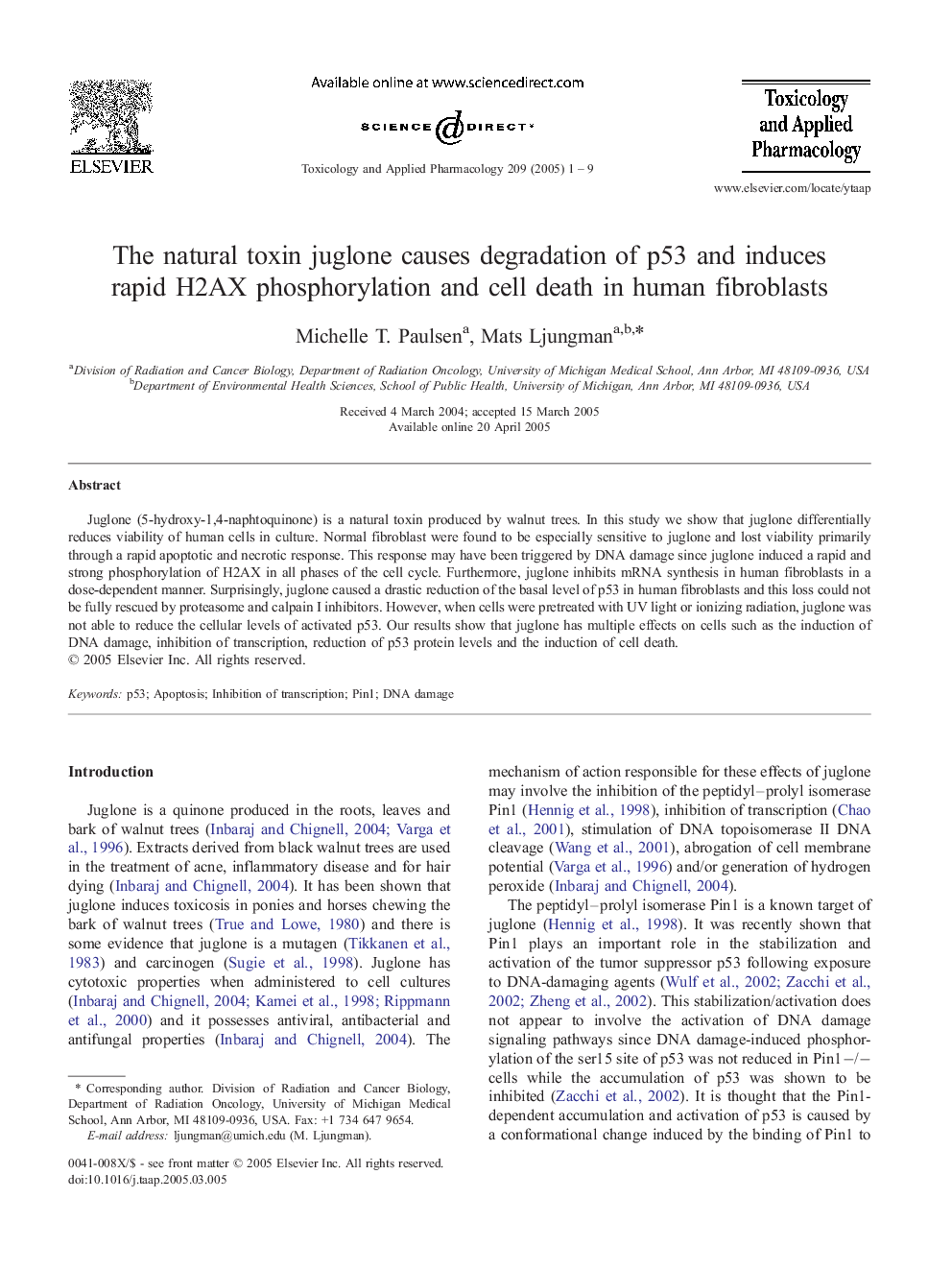| Article ID | Journal | Published Year | Pages | File Type |
|---|---|---|---|---|
| 9017700 | Toxicology and Applied Pharmacology | 2005 | 9 Pages |
Abstract
Juglone (5-hydroxy-1,4-naphtoquinone) is a natural toxin produced by walnut trees. In this study we show that juglone differentially reduces viability of human cells in culture. Normal fibroblast were found to be especially sensitive to juglone and lost viability primarily through a rapid apoptotic and necrotic response. This response may have been triggered by DNA damage since juglone induced a rapid and strong phosphorylation of H2AX in all phases of the cell cycle. Furthermore, juglone inhibits mRNA synthesis in human fibroblasts in a dose-dependent manner. Surprisingly, juglone caused a drastic reduction of the basal level of p53 in human fibroblasts and this loss could not be fully rescued by proteasome and calpain I inhibitors. However, when cells were pretreated with UV light or ionizing radiation, juglone was not able to reduce the cellular levels of activated p53. Our results show that juglone has multiple effects on cells such as the induction of DNA damage, inhibition of transcription, reduction of p53 protein levels and the induction of cell death.
Keywords
Related Topics
Life Sciences
Environmental Science
Health, Toxicology and Mutagenesis
Authors
Michelle T. Paulsen, Mats Ljungman,
